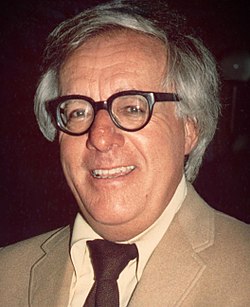Ray Bradbury Quote
Lilacs on a bush are better than orchids. And dandelions and devil grass are better! Why? Because they bend you over and turn you away from all the people and the town for a little while and sweat you and get you down where you remember you got a nose again. And when you're all to yourself that way, you're really yourself for a little while; you get to thinking things through, alone. Gardening is the handiest excuse for being a philosopher. Nobody guesses, nobody accuses, nobody knows, but there you are, Plato in the peonies, Socrates force-growing his own hemlock. A man toting a sack of blood manure across his lawn is kin to Atlas letting the world spin easy on his shoulder.
Lilacs on a bush are better than orchids. And dandelions and devil grass are better! Why? Because they bend you over and turn you away from all the people and the town for a little while and sweat you and get you down where you remember you got a nose again. And when you're all to yourself that way, you're really yourself for a little while; you get to thinking things through, alone. Gardening is the handiest excuse for being a philosopher. Nobody guesses, nobody accuses, nobody knows, but there you are, Plato in the peonies, Socrates force-growing his own hemlock. A man toting a sack of blood manure across his lawn is kin to Atlas letting the world spin easy on his shoulder.
Related Quotes
About Ray Bradbury
Bradbury is best known for his novel Fahrenheit 451 (1953) and his short-story collections The Martian Chronicles (1950), The Illustrated Man (1951), and The October Country (1955). Other notable works include the coming of age novel Dandelion Wine (1957), the dark fantasy Something Wicked This Way Comes (1962) and the fictionalized memoir Green Shadows, White Whale (1992). He also wrote and consulted on screenplays and television scripts, including Moby Dick and It Came from Outer Space. Many of his works were adapted into television and film productions as well as comic books. Bradbury also wrote poetry which has been published in several collections, such as They Have Not Seen the Stars (2001).
The New York Times called Bradbury "An author whose fanciful imagination, poetic prose, and mature understanding of human character have won him an international reputation" and "the writer most responsible for bringing modern science fiction into the literary mainstream".
